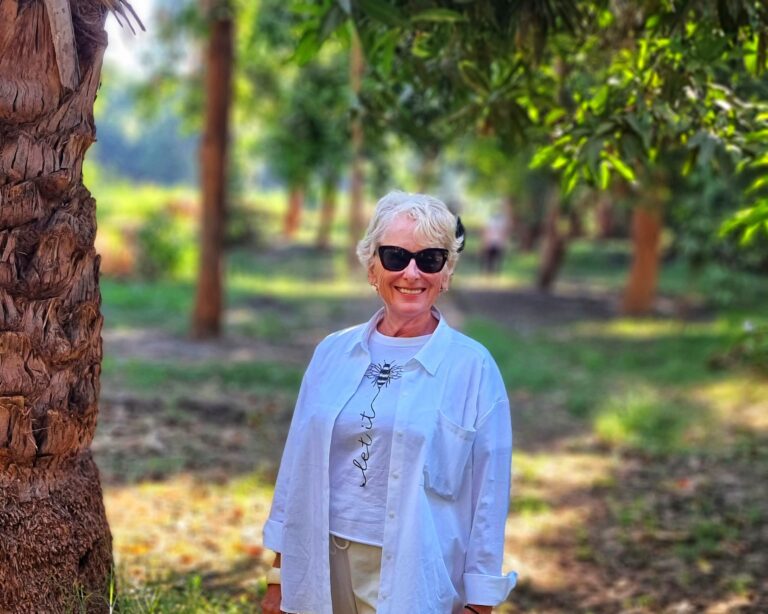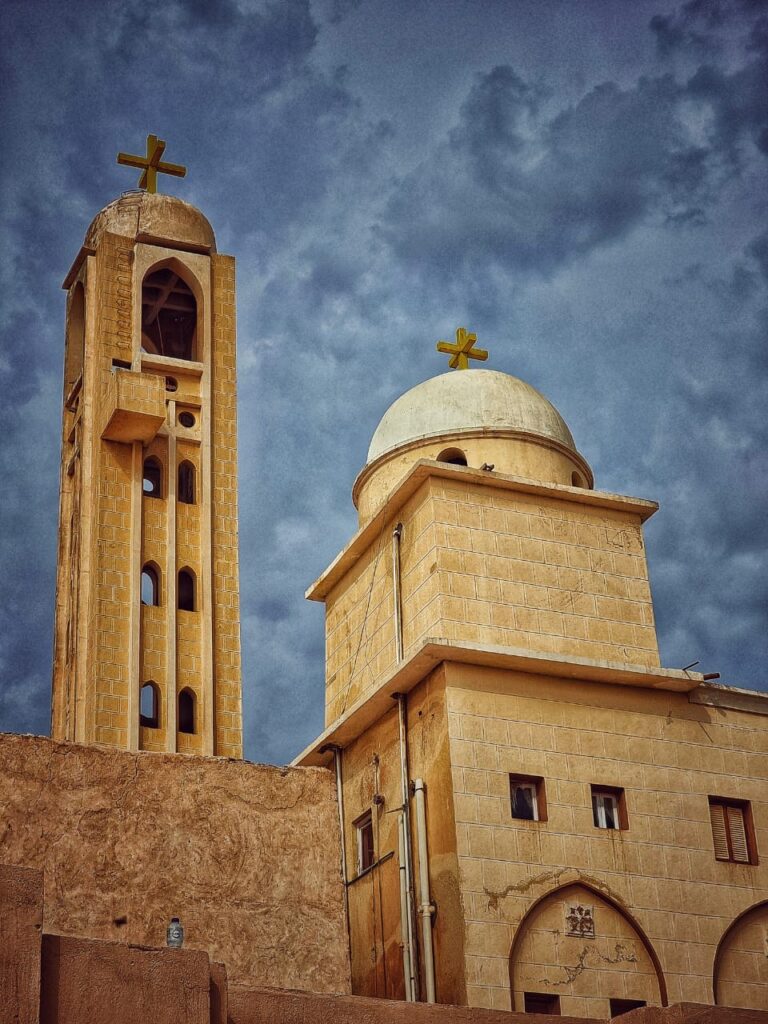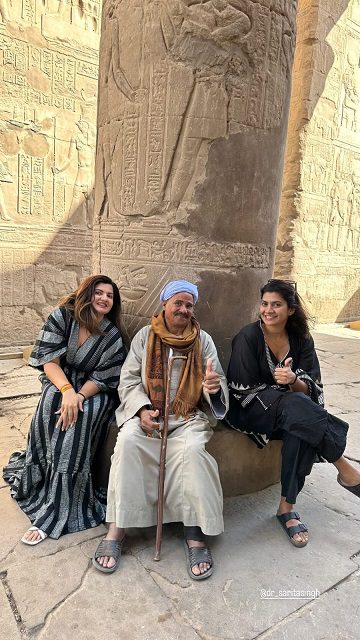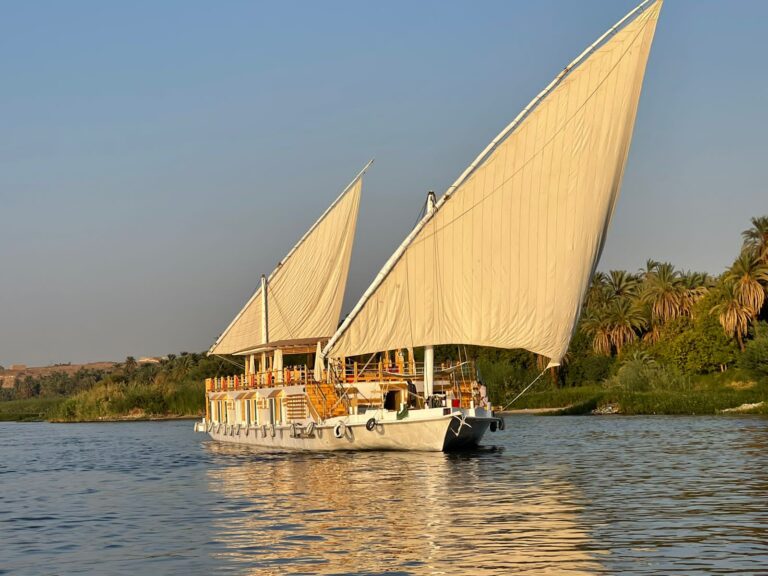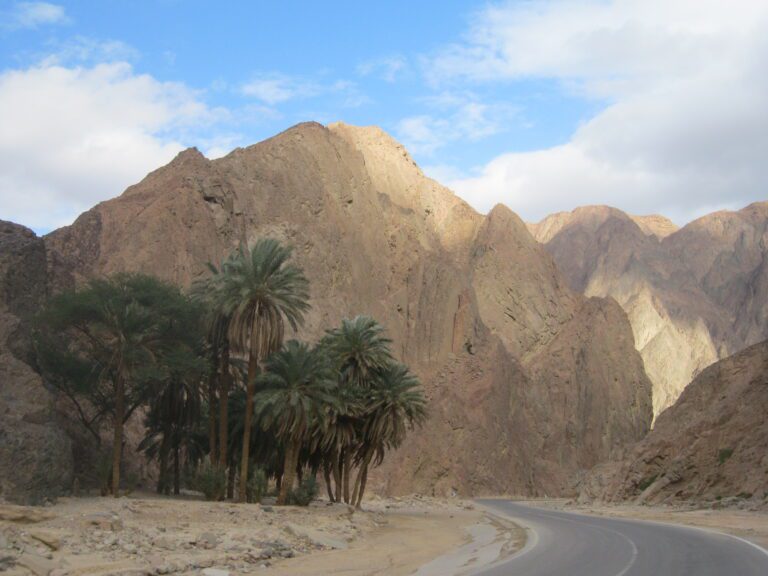Egyptian society is conservative, in some places more than in others. Exposed arms , legs, and more are accepted in big city nightclubs and in tourist hotels in places such as Sharm el Sheikh and Hurghada. However off the beaches and in the streets, you will be mixing with Egyptians who choose more modest dress, for religious and traditional reasons. You will be more comfortable and have the chance for far deeper interactions with Egyptians if you dress modestly. This does not only apply to women, because many Egyptian men cover their arms and do not wear shorts or board shorts that expose above the knee.
The basis of your travel wardrobe should be long pants for men, long skirts or pants combined with a longer, loose and long sleeved shirt for women. Don’t show cleavage.
If you are in a conservative place and swimming, shorts or leggings and a shirt are best, and you won’t be as uncomfortable in the water in clothes as you would be if you were more exposed.
Women should carry a large scarf to cover your hair and shoulders when entering mosques. Visiting some mosques you may be provided with an Abaya, a loose, comfortable garment that will cover you from head to foot. Some Christian women cover their hair in church, so if you are attending a service take your scarf. The scarf can also make you feel more comfortable in areas that are more traditional, your guide will be able to advice on these. As a bonus, the scarf protects you from sun and sand dust.
Shoes must be removed before entering a mosques. People also go shoeless in many homes and eating places, especially where you will be seated on the floor; watch what others do and take your cue from this. If eating a traditional egyptian meal that includes sharing food from the same bowls and eating with bread it is worth noting the etiquette used, people eat with their right hand (even left handed people). if eating with bread use small portions and make sure you eat that portion in one mouthful,
Showing affection is done differently here. Do not kiss or embrace someone of the opposite sex in public. You will see Egyptian couples holding hands in the cities, but these will be married, engaged or courting. Children are freely embraced and kissed in most places, they are adored here, but as a foreigner you would not kiss or embrace a child unless you knew them and they instigated this. Smiles and waving are fine. Normally, women do not like to be photographed. Many others will be happy to pose for photos, and children and even adult Egyptians may ask to have their photo taken with you if they see you with a camera, or want to take a photo with you on their phone; enjoy your five minutes of being like a celebrity.
Handshakes are an accepted greeting for foreigners but be aware that some Muslim women do not shake hands, and don’t feel you are being slighted if they don’t respond to an outstretched hand. Men often walk arm in arm or with an arm around a friend’s shoulder, and this should not be read as it may be in other cultures – it is purely a gesture of friendship here, not indicative of sexual preference. Men embrace each other warmly and kiss lightly on meeting,. Women will also do this, but you will be more used to seeing that in your own culture.
Egyptian body language is a whole other, complex world. Do not maintain eye contact for a long time, and women should avoid this especially as it can be misinterpreted not just as staring, rudeness, or a challenge, but as an invitation to intimacy that you did not intend to make. In tourist resorts you will meet Egyptian men who use all the Western social body contact norms such as touching your arm, trying to hold your hand, and more, but you should politely decline this body contact as they only encourage inappropriate behavior, and make life more difficult for other women visitors and Egyptian women who do not welcome this.
You will see Egyptian women wearing different levels of cover, some dressing not so differently to you, others covered completely except for their eyes. You will be delighted to discover the women behind the covers have so much to offer, if you make conversation and look beyond any apprehensions based on appearance. They are curious and maybe even a little bewildered about you and your life, too.
Bedouin women and the women of Siwa cover differently and more than most, again you will be more accepted in these places if you are modestly dressed.

